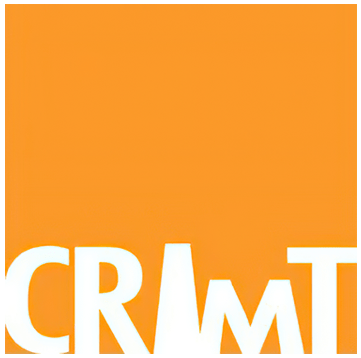
Recipients
Spring 2018
Ms Isabelle Hudon
PhD Candidate
Université Laval

It is with great pleasure that the members of the student funding committee have chosen to award the very first Shirley Goldenberg Scholarship to Mme Isabelle Hudon, doctoral candidate in the Department of Industrial Relations at Laval University.
Entitled The ethical and political dimensions of the decision-making experience of board members of Quebec public health institutions, the candidate’s thesis focuses on the governance of Quebec public health organizations. More specifically, she is interested in the ethical and political dimensions relating to the experience of public health institution board members and their participation in decision-making.
This study takes place in the context of the reform of the health network that began in 2015 with the sanction of Bill 10 proposed by Minister Gaétan Barrette and which aims to optimize the efficiency of the Quebec health and social services network. This reform, considered in the framework of this research as an institutional experimentation, introduces many changes, not only at the level of governance and the different decision-making bodies, but also at the level of the organization of care and services offered to the public. The impacts of the reform are therefore significant for workers in the health network, some of which have been criticized in the media.
Through qualitative analysis of semi-structured interviews with 40 board members of Quebec public health institutions, the candidate wishes to explore the ethical sensitivities and political thinking that exist in the context of their duties as board members. She also wants to understand how they introduce (or not) these aspects as part of their participation on the board. The candidate seeks to understand how they build their sense of commitment in this new power architecture and how they manage to negotiate spaces of influence in the decision-making process. At this stage of her research, she observes the emergence of some configurations of meaning that notably vary in accordance with the status of the board member and that sometimes confront opposing visions of the Quebec public health and social services network, but without ever being able to confront them in a way that would enable them to take control of the ethical tensions at stake.
Possessing an outstanding academic record, confirmed by the award of excellence scholarships from major research funding bodies (FRQSC and SSHRC) both at the master’s and doctoral level (including an SSHRC’s Joseph-Armand-Bombardier Scholarship), an impressive record of publications (just under a dozen) and scientific presentations (more than twenty since the beginning of her university studies), and a sustained involvement in the research community, Ms Hudon submitted an innovative project, remarkably well-structured, and of great social relevance. Focusing on a flagship case of institutional experimentation, her research focuses on the processes involved (notably in terms of agency), particularly for directors of the Quebec health and social services network who are confronted with the (often deleterious) impacts of these reforms on health and social services workers. The jury could not have chosen a better candidate to receive the first Shirley Goldenberg Scholarship.
Autumn 2018
Ms Laurence Derouin-Dubuc
PhD Candidate
Université de Montréal

It is with great pleasure that the members of the student funding committee have chosen to award the second Shirley Goldenberg Scholarship to Ms Laurence Derouin-Dubuc, doctoral candidate at the School of Industrial Relations at the University of Montreal.
Entitled Visual artists’ agency in a context of precarious work: resources and constraints of Montreal’s artist-run centres, the candidate’s thesis focuses on visual artists’ strategic capacities in relation to the improvement of their working conditions. More precisely, she investigates how visual artists experience precarity and how they transform it by negotiating a better balance of power in the labour market. They do so by exploiting a set of resources and constraints that are contingent to their environment.
This study is highly relevant in the context of the Quebec government’s announcement, in June of 2018, that both Status of the Artist Acts will undergo a revision process (R.L.R.Q., 1987, S-32.1 and R.L.R.Q., 1988, S-32.01). Thirty years after their implementation, this announcement underlines the persistent difficulties of regulating an atypical type of labour characterized, in the main, by project-based work. Despite the fact that Quebec’s legal framework continues to be considered innovative in the field of labour law, artistic work stays objectively precarious. That said, artists do not necessarily share this perception and tend to reject this label.
Drawing on a variety of strategies, they shape different opportunities that allow them to confront, circumvent or mitigate the sources of precarity they encounter in the labour market. Drawing on a qualitative approach, this study aims at making Montreal’s artistic milieu a laboratory that allows for a finer understanding of agency in the context of precarious work. By focusing on the opportunities generated by the precarity experience, the candidate wishes to evaluate how artists are drawing on their environment’s organizational and legal resources as part of a political action that seeks to affirm the value of their work in society and allows them to make a better living from their artistic practice.
Demonstrating an outstanding academic record, confirmed by the award of excellence scholarships from major research funding bodies at the doctoral level (FRQSC and SSHRC), a significant set of publications (both scientific and professional) and scientific presentations (both at national and international level) and a sustained involvement in both the research and artistic communities, Ms Dubuc submitted an exceptional project of great social relevance. Focusing on two institutional experiments (the artist-run centre and the Status of the Artist Act), this project is opening new lines of thinking when it comes to the development potential of institutionalized measures dedicated to the regulation of project-based work. It is with extreme pleasure that the jury has awarded Ms Laurence Derouin-Dubuc, PhD candidate in the School of industrial relations at Université de Montréal, the second Shirley Goldenberg Scholarship.
Spring 2019
Ms Émilie Lessard-Mercier
PhD Candidate
Université Laval

It is with great pleasure that the members of the student funding committee have chosen to award the third Shirley Goldenberg Scholarship to Ms Émilie Lessard-Mercier, doctoral candidate at the Department of Industrial Relations at Laval University.
Mobilization Against Austerity Measures in Quebec: The Case of Child Care Services (Mobilisations face aux mesures d’austérité au Québec : Le cas des services de garde à l’enfance) is a thesis project that examines the mobilization of power resources and strategic skills by educators in early childhood centers in a context of austerity. The family policy adopted in 1996 sits at the intersection of struggles led by social groups since the 1970s and the adoption of policies aiming at stimulating the labor market in Quebec. A daycare network was established offering universal access to childcare services in exchange for a reduced parental contribution. However, this network was rapidly at risk under the Quebec Liberal Party elected in 2003, which accelerated the neo-liberal shift, already well underway, by focusing on the development of private daycares and the introduction of a modulated pricing system. The objective of this thesis project is to report on action strategies deployed by groups almost exclusively made up of women working in a sector where numerous obstacles are standing in the way of mobilization and the protection of public networks and services. Thus, by combining textual interpretation and semi-structured interviews, this qualitative research seeks to explore the use of new repertoires of actions by educators to broaden their support and to establish a balance of power with the neo-liberal state, which acts both as an employer and as a regulator of early childhood care relationships. The theoretical approach adopted has two goals: first, to specify the gender relationships inherent to an early childhood educator’s work in Quebec; and second, to present several scales of mobilization of the educators’ power resources while considering the distinctive features of a caregiver’s work.
The issue of mobilization brought forward in this research project has been a key concern of mine for the last ten years, both at the academic and personal levels. I am involved in several activist groups fighting for better living conditions. During my university studies, I was a member of the executive council of my student association and earned my master’s degree in political science. My research focused on the coalitions of social movements and led to the publication of a report on the negative impact in Quebec’s regions of the reform of the Canadian employment insurance program. My social involvement and advocacy activities are central elements in the issues pushing me to pursue a doctoral degree on the conditions and effects of citizen engagements.
Autumn 2019
Ms Jonelle Humphrey
PhD Candidate
McMaster University

It is with great pleasure that the members of the student funding committee have chosen to award the Shirley Goldenberg Scholarship to Ms Jonelle Humphrey, doctoral candidate in the School of Labour Studies at McMaster University.
Entitled Experimental regulation to address forced labour in supply chains: What will Canada choose?, Jonelle Humphrey’s thesis focuses on analysing various models of transparency legislation Canada could experiment with to address the dire issue of forced labour occurring in the supply chains of numerous Canadian corporations.
This study is timely due to the fact that on 13th December, 2018, Bill C-423, cited as the Modern Slavery Act, was introduced in Canada’s House of Commons. The Bill required companies to report the use of forced or child labour in their supply chains if products were made in or imported into Canada. Although the Bill was not passed due to dissolution of Parliament in preparation for federal elections on 21st October, 2019, Canada has made an international commitment to address forced labour in supply chains.
Using doctrinal legal research this thesis will explore various types of regulatory strategies Canada could employ which would more effectively address the issue of forced labour in supply chains than the previously proposed Bill. Furthermore, using socio-legal methods this thesis will investigate if and how procurement practices of corporations have changed in anticipation of transparency legislation and proposes to conduct case studies involving Canadian companies which have faced or are facing labour abuses in supply chain related legal action. Guided by responsive regulation theory, this thesis aims to recommend regulatory interventions with broad, sustainable effects which involve a wide variety of social actors including government ministries and civil society groups to more effectively target and eradicate indecent or unacceptable forms of work.
Jonelle Humphrey is an Attorney-at-Law in the jurisdiction of Trinidad and Tobago where she formerly worked as Judicial Research Council to judges of the High Court and Court of Appeal. After writing the Caribbean Advanced Proficiency Exams she was the recipient of the Caribbean Examination Council Award for the most outstanding performance in Humanities in the Caribbean region. She is also a recipient of Trinidad and Tobago’s President’s Medal as well as an Open Scholarship, both awarded for the most outstanding performance in Humanities in Trinidad and Tobago. She was also awarded the International Office Scholarship at the University of Bristol, United Kingdom, where she pursued her Master of Laws (LL.M.) in Labour Law and Corporate Governance. The jury could not have chosen a better candidate to receive the Shirley Goldenberg Scholarship.
Spring 2020
Ms Ammon Lilyane Djouldé Alou
PhD Candidate
Université Laval

It is with great pleasure that the members of the student funding committee have chosen to award the Shirley Goldenberg Scholarship to Ms Ammon Lilyane Djouldé Alou, doctoral candidate at Université Laval.
Titled Les enjeux du temps de travail : l’action syndicale face au développement de l’obligation de disponibilité. Une approche de genre [Working Time Issues: Union Activity in the Face of Growing Availability Obligations. A Gender Approach], this thesis seeks, through the lens of working time and, in particular, of compulsory and non-compulsory overtime, working hours and leave, to analyze trade union action in relation to the obligation of availability. This project stems from several observations: According to the Secretariat of Labour, labour disputes over working time were the second most common cause of labour dispute (strike or lockout) in Quebec in 2015, after general wage increases. Socially, we are seeing a rise in interest in these concerns, as reflected by their extensive media coverage. This highlights the phenomenon of the”extensification” of work, which is defined as “working time flexibility according to the needs of the employer”, a phenomenon that accompanies the intensification of work. These changes have a significant impact on the work-family balance, with women being the most affected in their experience of the labour market. Effects compounded by the fact that the obligation of availability suffers from a weak regulatory framework in Canada.
The research will involve case studies, for which the Canadian Union of Postal Workers has confirmed its participation. Using qualitative analysis and conducting semi-structured interviews with members and elected officials of unions representing urban mail carriers of Montreal and Quebec, as well as rural and suburban mail carriers, the thesis will explore how the CUPW has integrated working time issues (compulsory or non-compulsory overtime, working hours and leave) into its guidelines (framing) and actions (mobilization and repertoires of action), both in intra-organizational processes and in its bargaining with the employer.
This analysis will follow a gender and critical realism perspective, looking at sources of union power and strategic capabilities, in the hope that it will lead to a better understanding of trade union action in relation to changes taking place in the organization of work and, in particular, of working time arrangements.
Showing outstanding academic results at the doctoral level, Ammon Lilyane Djouldé Alou is the recipient of a SAGE scholarship, as well as of the Jennie-Skene award of the Fédération interprofessionnelle de la santé du Québec (FIQ). She is currently writing a manuscript for submission to the Industrial Relations journal, based on chapter 4 of her thesis. In this article, she will present a portrait of the scope and nature of the issues related to working time, namely the strikes and lockouts that occurred in Quebec between 2005 and 2018. The jury is extremely pleased to award the Shirley Goldenberg scholarship to Ms Ammon Lilyane Djouldé Alou.
Autumn 2020
Ms Joannie Lamontagne
MA Candidate
Université de Montréal

It is with great pleasure that the members of the student funding committee have chosen to award the Shirley Goldenberg Scholarship to Ms Joannie Lamontagne, MA candidate at Université de Montréal.
The legal notion of employer and digital work platforms : are the answers in comparative law valid for Quebec?
This dissertation aims to shed light on the phenomenon of digital work platforms from a labour law perspective. The purpose is to better understand how these platforms function, how work is organized, and whether current legal concepts are adapted to this new economic model.
Over the last few decades, the number of digital work platforms has grown considerably in the international labour market. One of the problems caused by these platforms is that they “clash with existing labour law rules”, thereby creating a “grey area of employment”.
On the one hand, it is questionable whether the relationship that exists between the platform company and the worker is a contract of employment between an employee and an employer or whether the platform acts rather as a mere intermediary facilitating the conclusion of a business or service contract between the worker, identified as an independent contractor or service provider, and the client.
On the other hand, even if the platform worker is considered an employee, it is not clear who the employer is when both the platform company and the client exercise control over the platform worker’s work. There is a certain “legal vagueness” surrounding the regulation of these tripartite relationships in labour law because it usually applies to bipartite relationships between an employee and a single employer.
The question of platform companies as employers is therefore complex, with far-reaching implications with regards to worker protection.
To conduct this research, the doctrinal and landmark decisions rendered in different countries will be used to compare different models of platform regulation and to identify those we could examine for Quebec. Next, Quebec case law will be studied in relation the regulatory experimentations identified as likely to protect platform workers in order to assess their feasibility in the case of Quebec.
Joannie Lamontagne became interested in the phenomenon of digital platforms during the last year of her Bachelor’s degree in Industrial Relations, honours, at the Université de Montréal, from which she is now a graduate. During her studies, she was awarded a scholarship of excellence from the School of Industrial Relations and two mentions of excellence from the Faculty of Arts and Sciences of the Université de Montréal. She also completed three years of study in Paralegal Technology, during which she developed a keen interest in labour law. This is the reason she chose to complete a master’s thesis in this field of study. The jury is extremely pleased to award the Shirley Goldenberg scholarship to Ms Joannie Lamontagne.
2021
Ms Béatrice Venne
MA Candidate
Université du Québec à Montréal

It is with great pleasure that the members of CRIMT’s Student Funding Committee have chosen to award the Shirley Goldenberg 2021 Scholarship to Ms. Béatrice Venne, a Master’s candidate at the Université du Québec à Montréal.
Le rapport au droit du travail des travailleurs et travailleuses sylvicoles anicinapek
Le mémoire de l’étudiante s’intéresse à la réception par les personnes salariées autochtones des normes minimales d’emploi censées les protéger (salaire, droit au repos, santé et sécurité du travail). L’objectif est de dégager les significations juridiques que ces normes emportent pour ces destinataires. Comment les personnes salariées autochtones perçoivent-elles les « modèles d’action et de référence proposés » par le droit du travail (Gesualdi-Fecteau, 2016)?
Sur le plan formel, le droit du travail est généralement applicable aux personnes salariées autochtones aussi bien en réserve qu’hors-réserve. Or, peu d’études se sont intéressées aux personnes salariées autochtones en tant que destinataires du droit du travail. Il est donc apparu nécessaire de documenter empiriquement le rapport qu’elles entretiennent avec cet ensemble normatif, en recourant à une approche méthodologique qualitative et inductive. À partir de l’analyse d’entretiens semi-dirigés, la recherche met en évidence leurs perceptions en comparant deux modèles distincts d’organisation du travail au sein de deux entreprises détenues par des intérêts économiques autochtones. Ce faisant, cette étude cherche à comprendre comment le système d’emploi concret dans lequel ces personnes salariées s’insèrent influence le rapport qu’elles entretiennent avec la régulation du travail. Le contexte local de la recherche est celui des Anicinapek en Abitibi-Témiscamingue œuvrant dans le secteur forestier.
Sur le plan de l’expérimentation organisationnelle et institutionnelle, le projet de l’étudiante s’inscrit dans le cadre de travaux dans plusieurs disciplines dont le but est de définir les fondements d’une « foresterie autochtone ». Il engage à la fois une réflexion sur la régulation étatique du travail et la régulation étatique d’un secteur d’activités économiques, l’aménagement du territoire forestier public, sur les pratiques et les stratégies d’entreprises qui, de manière à assurer la participation de la main-d’œuvre autochtone, sont susceptibles d’être multiples et sont peu documentées.
L’étudiante a terminé son baccalauréat en droit (LL.B) à l’Université du Québec à Montréal (UQAM) et la formation professionnelle de l’École du Barreau du Québec en 2018. Elle a travaillé comme étudiante-recherchiste à la Direction des affaires juridiques de la CNESST, comme auxiliaire d’enseignement et de recherche en droit du travail, et travaille actuellement comme étudiante homologue avec une étudiante autochtone au baccalauréat en droit du Département des sciences juridiques de l’UQAM. Son projet s’inscrit en droite ligne avec ses intérêts de recherche : le rapport que les personnes entretiennent avec le droit dans le cadre de leur vie quotidienne, les sources du droit et de la régulation du travail, et les traditions juridiques autochtones. Elle s’intéresse particulièrement aux approches empiriques et multidisciplinaires de la recherche en droit. Elle a reçu le soutien financier du Conseil de recherches du Canada en sciences humaines (2019-2020) et du Fonds de recherche du Québec – Société et culture (2020-2021) pour son travail à la maîtrise. Béatrice travaille sous la supervision sûre et avisée de la professeure du Département des sciences juridiques de l’UQAM, Dalia Gesualdi-Fecteau, et de Hugo Asselin, professeur à l’École d’études autochtones de l’Université du Québec en Abitibi-Témiscamingue.
2022
Ms Temisan Fanou
MA Candidate
McMaster University

It is with great pleasure that the members of CRIMT’s Student Funding Committee have chosen to award the Shirley Goldenberg 2022 Scholarship to Ms. Temisan Fanou, MA candidate at McMaster University.
The influence of modern slavery laws on multi-stakeholder initiatives to eliminate forced labour and child labour in global supply chains
Over the last decade, there has been renewed attention on the role of forced labour and child labour in sustaining the functioning of global supply chains, and various governance initiatives have emerged to address the issue. This thesis examines the interaction between two hybrid and experimental forms of governance: multi-stakeholder initiatives (MSIs) and modern slavery laws.
MSIs, which bring together companies, NGOs, and trade unions, have dominated the landscape for the past few decades with only limited results in terms of reducing labour exploitation. Modern slavery laws are a newer form of regulation which require companies to take steps to remove – or, at a minimum, to disclose – the use of forced or child labour in their supply chains. As the Canadian government prepares to introduce a modern slavery law imminently, with Bill S-211 having reached the penultimate stage of the legislative process, empirical evidence on the impact of these laws will be useful to Canadian government, business, and civil society actors.
This thesis will use a socio-legal methodological approach to investigate how companies and MSIs have reacted to modern slavery laws in a specific sector: cocoa. The research will focus on a specific lead firm in the sector and analyze the MSIs that it engages with, in the context of the modern slavery laws to which it is subject. It will use multiple research methods including key informant interviews, supply chain mapping, and documentary analysis. Ultimately, the thesis will assess how modern slavery laws can contribute to improving the lives of workers at the bottom of the supply chain.
Temisan Fanou is a dual-qualified lawyer (Ontario and Nigeria) specializing in labour, migration, and human rights. She is passionate about supporting the 2030 Sustainable Development Agenda, particularly in Africa. Since graduating from the University of Toronto (international relations and peace and conflict studies) and the University of Oxford (jurisprudence), she has worked with the International Labour Organization, the International Organization for Migration, and the Immigration and Refugee Board of Canada, among others. In 2021, she received the Labour Studies Social Justice Graduate Scholarship at McMaster University in recognition of her deep commitment to social justice and solidarity.
2023
Ms Priyanka Preet
MA Candidate
McGill University

It is with great pleasure that the members of CRIMT’s Student Funding Committee have chosen to award the Shirley Goldenberg 2023 Scholarship to Ms. Priyanka Preet, MA candidate at McGill University.
Bolstering Female Labour Force Participation in the Indian Workforce: Poor female labour participation is a critical problem across the globe.
The Indian FLFP rate has been steadily declining making the country one of the worst performers globally. In the stratified Indian society, the intersection of gender, caste and religion makes FLFP a complex socio-legal issue that is yet to be confronted by the Indian Government in its entirety. In contrast, Canada has one of the highest FLFP rates worldwide with the Employment Equity Act as a ‘proactive strategy’ to target systemic discrimination against women and other minority workers. The principal question that the thesis addresses is whether the Employment Equity model can be reimagined in the Indian context to eliminate systemic barriers against women and enhance the female labour force participation rate in India. To address the principal question, the thesis scrutinises the discrimination confronting women workers with diverse identities in India and Canada. Second, the history and development of the Canadian Employment Equity model and judicial discussion on employment discrimination and substantive equality have been traced. Significantly, the thesis proposes a legislative model for public and private organisations which retains the quota system but mandates other forms of special measures while requiring accountability to the National Commission for Women. The goal of the legislative model is to travel beyond improving the statistical representation of women to foster an accommodative work environment, bolster training and promotional prospects for women, dismantle occupational ghettos and transform organisational structures. The research methodology is doctrinal and comparative as the thesis studies two multicultural, constitutionally similar, and common law-based polities.
Priyanka Preet is a master’s student at the Faculty of Law, McGill University. She has been a recipient of the McGill Entrance Scholarship, the CRIMT Studentship for Better Work and the Labour Law Development and Research Laboratory scholarship at McGill. She holds a B.A. LL.B.(Honours) degree from National Law School, Lucknow, India while also representing her university as a United Nations Millennium Fellow in 2021. In India, she freelanced as a legal journalist and interned at the Office of the Chief Justice of India, the Office of the Additional Solicitor General, chambers of Senior Advocates and the Central Information Commission, New Delhi. She has contributed several articles to national and international journals, national news websites, magazines and legal blogs. She has also presented her research at the University of Oxford, Dublin City University, Catolica University, Portugal and McGill University. While she has dealt with diverse areas of law in India and Canada, she enjoys delving into labour, constitutional, human rights and public international laws.
2024
Mme Leanna Katz
PhD Candidate
McGill University

It is with great pleasure that the members of CRIMT’s Student Funding Committee have chosen to award the Shirley Goldenberg 2023 Scholarship to Ms. Leanna Katz, PhD candidate at McGill University.
Governing Welfare Markets: The Rise of Finance in Social Services
The growth of financial investors, especially private equity funds, in social services from hospitals and health clinics to long-term care homes and childcare centers has raised questions about cost control, quality, and working conditions in these sectors. As federal, provincial, and territorial governments in Canada (except Quebec) increase childcare funding, the legal and regulatory framework shapes who benefits. This project asks in comparative perspective: (1) how have social and financial legal reforms permitted or constrained the rise of private investment in childcare and other social services? and (2) how are markets for childcare services structured and regulated considering the growth of private investment?
Building on welfare privatization research, the project traces how both social and financial reforms contributed to the emergence and growth of private investors in childcare. It supplements the dominant account of welfare restructuring to explain the shift toward investor-backed childcare providers. In response to their growth, childcare regulations have introduced limits on for-profit childcare providers’ market share, as a supplement to familiar childcare regulation of quality, cost, and professional standards. With governments in Canada stewarding investment in childcare services, this project aims to inform how the legal and regulatory framework can support quality and accessible care.
Leanna Katz is a doctoral candidate at McGill University’s Faculty of Law, an O’Brien Graduate Fellow at the McGill Centre for Human Rights and Legal Pluralism, and a SSHRC Doctoral Fellow. She holds a B.A.Sc. from McMaster University, a J.D. from the University of Toronto, and an LL.M. from Havard Law School. Her work has been published in the Canadian Labour and Employment Law Journal, the Georgetown Journal on Poverty Law and Policy, the Windsor Review of Legal and Social Issues, and the Commonwealth Judicial Journal.
Congratulations to all award winners!



